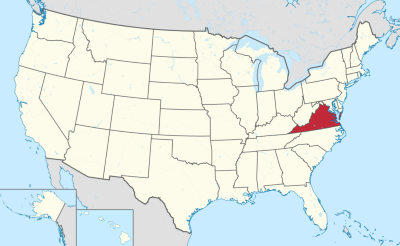Here you’ll find the largest list with Virginia hosting reviews. We’ve listed all Virginia web hosting providers with our UNCENSORED review and that of users.

Quick Facts
Internet Speed: 81.7 Mbps downlink; 19.8 Mbps uplink
Population: 8.38 million
Internet Coverage: 90% of residents
Main Internet Services: Cable, DSL, Fiber
Main Internet Service Providers: Xfinity, Verizon, FIOS by Verizon
Colocation Datacenters: 68 (prominent companies: RagingWire Datacenters, Digital Realty, InfoRelay)
Internet in Virginia
According to Akamai.com, the average Internet downlink speed in Virginia is 81.7 Mbps and the average uplink speed is 19.8 Mbps.
In 2016, the population of Virginia was 8.38 million. More than 90% of residents have access to the Internet, especially broadband connections.
The main Internet services provided in Virginia are as follows:
– Cable – more than 90% coverage
– DSL – more than 70% coverage
– Fiber – less than 50% coverage
The main Internet Service Providers located in Virginia are the following:
– Xfinity (Cable) – over 90% availability
– Verizon (DSL) – over 80% availability
– FIOS by Verizon (Fiber) – less than 50% availability
Gigabit Internet in Virginia
In December 2015, Cox Communications announced that they would start rolling out gigabit Internet in select areas of North Virginia. This service caters to both residential and business customers, and Cox is expecting to expand gigabit Internet in the whole state of Virginia in the coming years. Other ISPs have also shown interest in upgrading their infrastructure in order to provide high-speed Internet to residential customers, but no concrete plans have been released in this matter.
Colocation Datacenters in Virginia
According to datacentermap.com, there are currently 68 colocation datacenters distributed across 12 different areas in Virginia.
Colocation Datacenter Distribution by Area
Most datacenters are concentrated in Ashburn (19), followed by Vienna Virginia (10) and Reston (8). The rest of the datacenters are located in smaller cities, such as Manassas (4), Chantilly (3) and Middletown (1).
Prominent Colocation Providers
Major colocation providers in Virginia are the following:
– RagingWire Datacenters
– Digital Realty
– InfoRelay Online Systems
– Equinix, Inc.
– Net Data Centers
Biggest Facility Operated by RagingWire
One of the biggest colocation providers located in Virginia is RagingWire Datacenters, which operate a 150,000-square-foot facility located just outside Washington D.C. The datacenter is located in the heart of Data Center Alley, which contains one of the largest fiber carrier densities in the world, as well as highly-reliable and cost-effective utility power from Dominion Virginia Power. The facility provides retail and wholesale services, and features one of the most innovative architectures in the industry. It has unconditioned access to over 200 different telecom providers and colocation companies, including Zayo, XO, Level 3, Verizon, Comcast, NTT Communications, Cox, Time Warner Spectrum, Cogent, along with many others.
Colocation Industry – Market, Demand, Future Trends, Advantages
Virginia is currently the largest datacenter market in the entire United States, home to over 5 million square feet of commissioned datacenter space, which translates to over 620 MW of commissioned power. Demand for colocation space is at its peak, as reflected by the vacancy rate of just 6.3%.
Supply and Demand
The local market is currently experiencing historic annual market demand, making it one of the most active and vibrant datacenter markets in the United States, as well as on a global scale. With more than 103 MW of new supply under construction, an abundance of annual demand ensures the new space will be filled quickly upon completion.
Demand is driven by many established and emerging industries, including healthcare, tech, retail, aerospace, managed hosting, and telecommunications companies.
Virginia’s Fiber Optic Infrastructure and Submarine Cables
Providers and enterprise users are drawn to Virginia’s rich fiber optic networks and low latency. Connection to Western Europe, Brazil and South Africa is ensured by means of three new major TransAtlantic subsea cables, namely MAREA, BRUSA, and SAEx, which significantly reduces dependency on New Jersey and New York, while also providing greater connectivity.
Further Demand Driven By Third-Party Providers
Absorption is further enhanced by enterprise users and cloud providers that are turning to third-party providers because they can’t build their own facilities fast enough to keep up with internal demand. Additionally, Virginia – especially the Northern region – offers an abundance of available power at competitive rates and proximity to federal government facilities.

